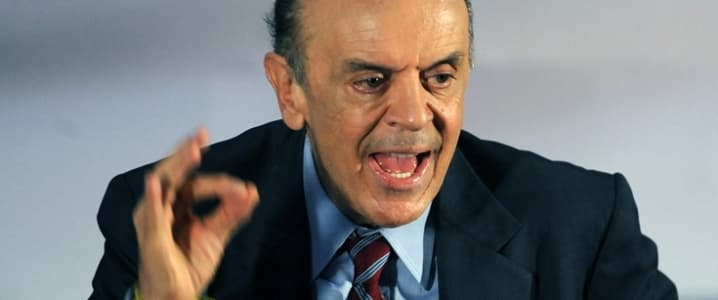Brazil’s new government is less than a week old, and already there are seeds of a scandal after a strong media backlash against the fact that the cabinet is all-white, all-male. Now a leaked cable from 2010, published on the WikiLeaks website, has put foreign minister Jose Serra in the spotlight.
The 2010 cable contains a quote from the then-presidential candidate Serra regarding the legislative framework of the development of Brazil’s pre-salt oil deposits, which goes as follows: “Let those guys [Worker's Party] do what they want. There will be no bid rounds, and then we will show everyone that the old model worked...And we will change it back.” Related: Does Tesla Care About Its Stock Price?
Now, pro-Left Brazilian media have interpreted this as suggesting that Serra was defending Chevron’s interests instead of those of his country. However, it is also plausible to interpret Serra’s words as expression of his political beliefs.
Serra is currently a member of a government that has a clear right-wing agenda. With Michel Temer from the rightist Democratic Movement Party at the helm, chances are that a drive towards less state control over key industries and greater focus on attracting foreign investments will take place, and those among international oil companies that can afford to partake in it will do so. This is all the more likely following the recent amendment to a controversial framework for production-sharing agreements in oil and gas.
In its original form – the form that pushed away Chevron and its peers – the framework stipulated that Petrobras will be the sole operator of any pre-salt exploration and production project, and will hold a minimum of 30 percent in any E&P consortium in this area. However, this version has proved harmful not just for foreign oil companies, but for Petrobras itself. Related: Saudi Arabia Loses Top Credit Rating from Moody’s
After its involvement in the giant graft scandal that surfaced as part of a wide-scale investigation called operation “Carwash”, Petrobras has been struggling to get back on its feet, and the drop in oil prices hasn’t helped it. To date, it sports the largest debt pile among oil companies of over $135 billion. Brazil’s state-owned oil giant is simply in no position to invest in every single pre-salt project and become its operator. It cannot fulfill the stipulations of the original framework.
So, the framework was amended to remove the obligation for sole operatorship of any development in the pre-salt, leaving Petrobras with the right of first refusal to be operator of such developments. In other words, any oil company, Chevron included, will be able to become the operator of a pre-salt E&P project.
It’s worth noting that the amendment—if it is passed by the parliament and the President approves it, which he will most likely do if he stays in power long enough—was approved by the Senate in late April, before Dilma Rousseff’s impeachment and before Jose Serra became foreign minister. Related: Why Jim Chanos is Shorting the Oil Majors
Whether Serra, in his role as foreign minister, would lobby for foreign corporate interests remains an open question and not a very major one. The new cabinet’s record as a whole is far from spotless, which suggests that its every move will be watched closely by local observers and the public. What’s more, there is still a possibility that Rousseff will return to the helm because after all, the case against her for abusing central bank reserves to fund social programs that opened a huge hole in the state budget may not hold in court.
If it does, the new government has two years to steer the country away from overwhelming state control of key industries. Whether it would succeed is a different matter that also depends on big oil’s willingness to take part in pre-salt development. If oil prices continue to recover, they will most likely be more than willing to invest in order to improve their reserve-replacement rates. On the other hand, things are dynamic in Brazil. In two years, the leftists could be back in office, ready to make big oil suffer. It’s a tough decision for Chevron and its peers.
ADVERTISEMENT
By Irina Slav for Oilprice.com
More Top Reads From Oilprice.com:
- Oil Price Spike Is Not As Far Away As Many Think
- Can Big Oil Survive At Today’s Prices?
- China’s Oil Industry Is Faltering, Production Falls 5%


















